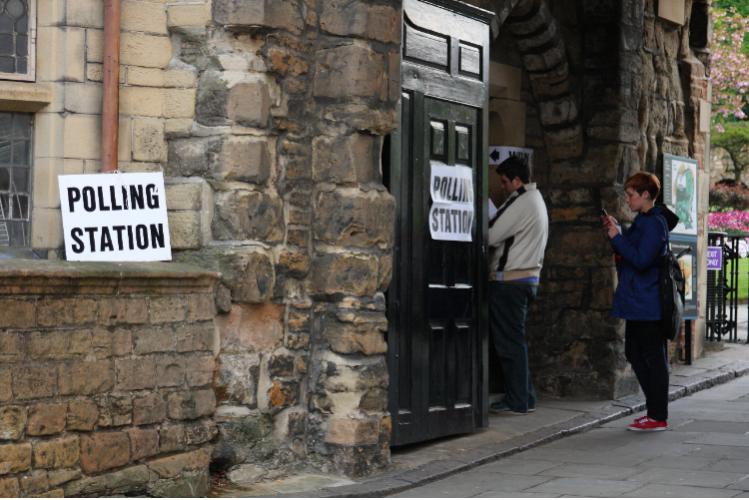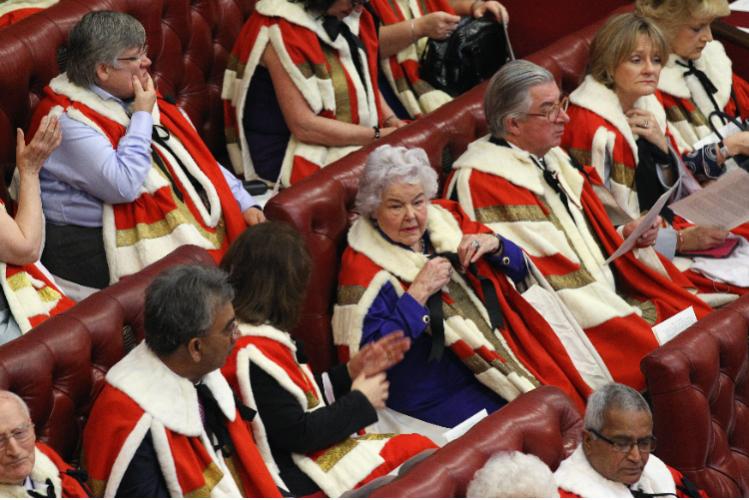Five ways to fix British politics
8 min read
British politics is in a mess, says Ben Ansell, but there are some relatively simple reforms we can make to restore proper accountability
Five prime ministers from the same party in just over six years. A disgruntled public, fewer than 20 per cent of whom think the country is headed in the “right direction”. And an economy experiencing its worst growth rate for over two centuries.
Not all of Britain’s problem are entirely of our own making – a volatile international environment, the inflationary costs of Covid and Ukraine, and a general decline in economic vigour – these are widely shared challenges. But our political system has not proven as robust as we might have hoped. So, what ails British politics, and how might we fix it?
Successful politics is about accepting that we will inevitably disagree, but making sure that we do so agreeably. That means steering between the dangers of a tyranny of the minority, where all reform can be blocked by opponents, and a tyranny of the majority where winners can trample over losers. British politics has recently tended towards the latter pathology. This is making our disagreement rather less agreeable.
We political scientists think about two sources of control over governments – the vertical accountability they owe to voters, and the horizontal accountability that comes from countervailing powers in the legislature, courts, media, and beyond. In Britain, both are fraying, creating volatile, short-termist politics. To fix our mess, we need to empower both voters and countervailing institutions to make sure our governments are held properly accountable.
1 - Improving turnout
Britain has a turnout malaise. Between the 1920s and 1990s, turnout of registered voters hovered between 70 and 80 per cent. In 2001 that collapsed to just under 60 per cent. It has only partially recovered, to around two thirds of the electorate. Turnout is also imbalanced. Age is twice as important in explaining turnout today as it was before the mid 1990s – a decade of age now makes people about six per cent more likely to vote.
As someone who missed my first opportunity to vote as a student because I didn’t realise I had to be registered, poor youth turnout does not exactly surprise me. But it is not inevitable.
Parliament could make registration simpler and more salient. Ideally this would be a form of automatic registration on a citizen’s 18th birthday, perhaps organised through schools in the same manner as vaccinations. Or, as in some US states, voters could be given the opportunity to register when they receive or renew driving licenses, passports, even bank accounts. As with pensions auto-enrolment, the key thing is to make voter registration the default position.
 Polling station (Credit: Mark Richardson / Alamy Stock Photo)
Polling station (Credit: Mark Richardson / Alamy Stock Photo)
2 - Matching constituency size to population
In the absence of automatic registration, large gaps have emerged between who is eligible to vote, who is registered to vote, and who actually turns up and does so. And because of the way we construct parliamentary boundaries, this has distortionary effects on Britain’s political geography. It is registered voters, not eligible voters, that count towards the size of constituencies. As Peter Kellner argues, this means that places where fewer eligible voters are registered – typically those with more young citizens, renters or ethnic minorities – are systematically under-represented in Parliament.
Many other countries draw up boundaries based on population rather than registered voters – for example, the United States, France and Germany. While that might include non-eligible voters, from children to immigrants, it does have the benefit of being both rather simpler and matching constituency size better to the needs of the resident population and hence the fiduciary responsibility of parliamentarians.
No-one in Parliament, I would imagine, is keen to have yet another boundary review, so this is one for the future. But until it happens, Britain’s electoral geography will remain unrepresentative.
3 - Introducing more representative elections
Of course, it is not simply constituency-drawing rules that make Parliament unrepresentative. The more common lament is with the way votes are counted within those constituencies. Our first-past-the-post (FPTP) system of vote-counting has its benefits – because it creates large electoral majorities from thin popular pluralities, it means coalitions are rare, and efficient and accountable government is more common. At least that’s the theory. FPTP may favour single-party government, but it can’t make those ruling parties internally unified. And increasingly, governing parties have become coalitions themselves, often of the seemingly unwilling. At the same time, smaller parties, be they Reform, the Liberal Democrats, or Greens, find themselves with far less legislative power than their electoral popularity merits.
Electoral reform for the House of Commons is a constant and likely tedious refrain from political scientists. And with the failure of the AV referendum in 2011, perhaps us academics have had our say. But there is another route… If the House of Lords is to finally be reformed, we could do worse than introducing a more proportional electoral system for the second chamber. One popular idea, intended to rebind a disunited kingdom, is a chamber of the regions.
Using a multimember system, not entirely unlike that used in (horrors!) European elections, could empower both the regions and smaller parties in ways that more clearly represent the diverse panoply of political views in Britain. If we are to have representative government, it’s important that we are governed representatively.
4 - Clarifying horizontal accountability
Talk of an elected second chamber brings us from the question of the government’s vertical accountability to voters to that of its horizontal accountability to other institutions. A new second chamber would need the ability to constrain government if it is to be more than window-dressing. The House of Lords is a veto-player of sorts, but only at the end of parliamentary terms when its power to delay becomes a power to derail. And the powers the Lords have are more historical accidents than by design. As I noted in my Reith Lecture on democracy, the House of Lords is now a vestigial limb – dare one say, a coccyx – of British politics.
Reform means establishing much firmer and clearer powers for a second chamber. And that means writing them down. It’s not that Britain doesn’t currently have a written constitution. The problem is that it doesn’t have a single constitution. Indeed, our constitution includes an anonymous letter written to The Times in the 1950s, by Alan Lascelles. As Iain MacLean has argued, some of our constitutional principles appear to be an infinite regress of constitutional lawyers citing other constitutional lawyers.
Unwritten constitutions have flexibility, but they are also sources of temptation. A government chafing at restraints placed on it by norms or principles may ultimately seek work-arounds, be they Henry VIII clauses, secondary legislation, or prorogation. James Madison’s lament that men are not angels, and hence one must oblige the government to control itself, remains true. Indeed, even truer since the shackles of European law have now been broken. Whatever form a new second chamber takes, its powers to review, delay or actively constrain the Commons will need to be cut crystal clear.
 Peers in the House of Lords (Credit: PA Images / Alamy Stock Photo)
Peers in the House of Lords (Credit: PA Images / Alamy Stock Photo)
5 - Empowering regions
Recent governments have balked at constraints in Whitehall and Westminster. But they have been even more sceptical of losing power to the regions and nations of the United Kingdom. The devolutions of 1998 marked a historic change in Britain’s tendency toward unitary government. Nonetheless even Scotland and Wales have substantially weaker powers in many areas, particularly finance, than even Australian states. Save for metro mayors, England remains disempowered locally. To the degree that local authorities do have powers, they are largely to dance to the tune of Westminster competitions for City Deals, or to arrange what funding they have left after meeting unfunded mandates for social care.
Perhaps England’s regions might be empowered by a new second chamber. But in its absence, one route to more responsive and accountable local government would be to reform local property taxation. Council taxes bear minimal relation to actual property prices, unlike in Canada or the USA. House price bands from 1991 have been stuck in amber – reflecting the prehistoric era of affordable housing. A variable land value tax, like that long recommended by John Muellbauer, would not only be fairer, it would empower localities to respond to their own citizens’ needs.
Ben Ansell is Professor of Comparative Democratic Institutions at Nuffield College, University of Oxford, the 2023 BBC Reith Lecturer, and the author of Why Politics Fails
